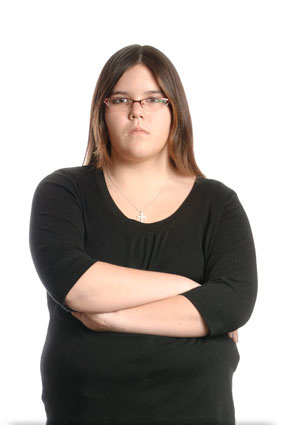In This Section
Advice Gone Wrong
Teens who experience or witness bullying are often told to “tell an adult.” While that is very important to do, not all advice will be helpful. These real-life scenarios will help you understand those times when you should talk with another adult.
Download Advice Gone Wrong Handout
“Just get along.”
Telling us to just be nice and stop bullying may work for some teens, but for the ones who really need the message, it’s just not that simple. Kids bully for lots of reasons; some do it to feel powerful, others because they are being bullied. This isn’t just a one-solution problem.

“It’s part of growing up.”
When I talk with you about bullying, it doesn’t help when you tell me that I will grow out of this…that it happens to everyone…that it wouldn’t happen if I just stood up for myself. I’m telling you because I can’t handle this by myself. Don’t shut me out. I need your help.
“Ignore them, they’ll stop.”
Just ignore them? Adults tell us that all the time. Do your problems go away by ignoring them? Your annoying boss? Bills? I wish I could ignore my homework and it would just go away. Enough said.
“Wait and see what happens.”
Sit by and do nothing? Not gonna work. That’s just encouraging people to look the other way. We see silence as supporting the situation. It’s like saying bullying is just the way it is and it’s okay.
“Talk it out.”
Talk it out. Really?? That solution might work in your world. Talking it out means both sides are comfortable saying what’s on their minds. You try being rational when you’re being pounded on. It’s intimidating to be made fun of.
“Tell them how you feel.”
Don’t ask me to tell the bully how I feel. Are you kidding!? If a guy is trying to make me feel bad, wouldn’t that just let him know he’s won?
“Hit ’em back.”
Fighting? That’s your answer? The last kid at school who tried that ended up suspended for three days.
If you are being bullied, it may not be easy to do, but it’s really important to tell an adult. This can be your parents, guardian, or another family member. It can also be someone at school, such as a teacher, administrator, designated bullying prevention liaison, or someone you trust.
If you do get advice that’s not helpful, that’s not your fault, keep trying, don’t give up! One helpful approach with adults is to share that you know about your rights and that if you could fix this on your own, you would. You can say, “I know that there are laws against bullying. What can we do to work together so that I don’t have to keep going through this?” Keep sharing your story until you connect with someone who can help.





